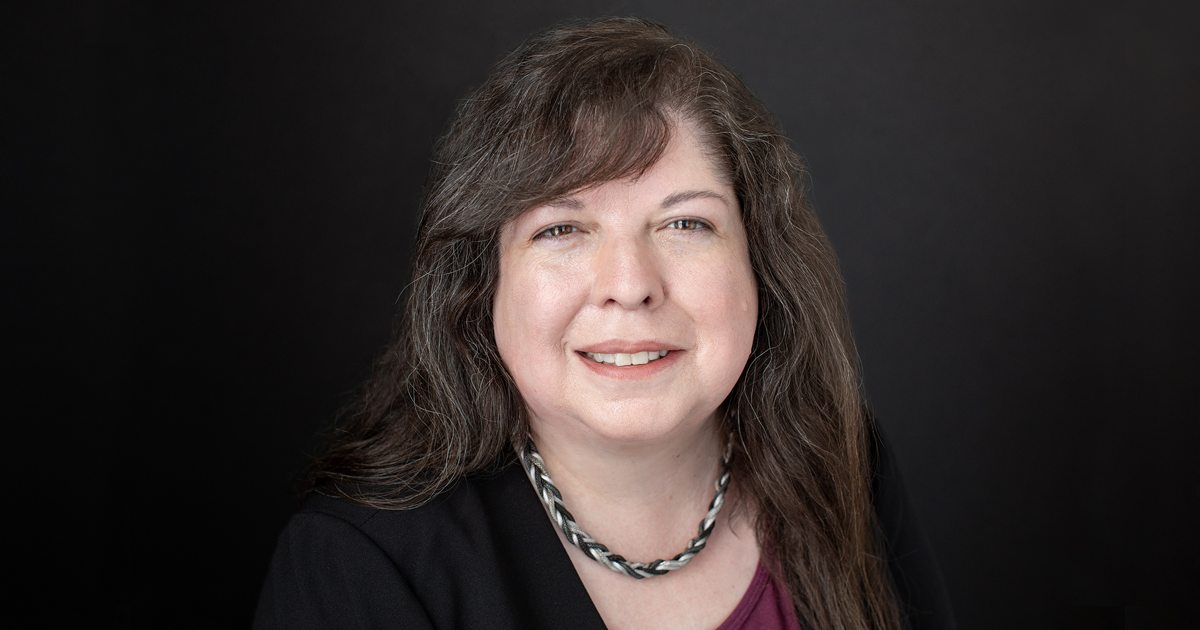
As a professor of meteorology with a vast scope of knowledge on all things atmospheric, Lourdes Avilés has been fielding questions from journalists for decades. Years ago, she says, inquiries centered around the science behind optics.
How does a snowflake form? What creates lightening? Why is the sky blue?
Lately, though, it’s all been about climate change for the media, and sometimes the questions are too random for Avilés to validate, such as this one she received recently: Has there been an increase in air turbulence due to climate change?
Avilés did particularly enjoy the media attention that came from across the country from the Weather Channel and others when her first book, Taken by Storm, 1938, about the Great New England hurricane, was published in 2013. Now, in addition to teaching courses in everything from basic meteorology to atmospheric physics, and running her academic unit, she is penning a book on atmospheric optics, phenomena that first attracted her to the field; each chapter is focused on a particular effect and cause.
Plymouth State’s Associate Provost—who is very likely the first Puerto Rican woman to earn a PhD in atmospheric science in the country—Avilés puts her passion, high energy, and intelligence to work in many ways. On top of her academic commitments, she is an advisor for PSU’s Center for Diversity, Equity, and Social Justice and a trustee of the Mount Washington Observatory, for which she brainstorms and troubleshoots educational initiatives.
Avilés was raised and educated in Puerto Rico and came to PSU almost 19 years ago. She values that the University is peaceful and safe as well as supportive of faculty, its programs and, most importantly, its students. “We interact with our students outside of class,” she says. “They know they can come talk to us, not just about academics but about their futures, any problem they’re having.”
As a child, Avilés peppered her parents for years with the kinds of questions the media has asked her about. She was interested in how the Earth works—volcanos, thunder, rainbows. She knew she wanted to be a scientist and was always explaining something to her peers. “My college professors sometimes called on me to explain concepts to other students,” she says.
She earned her bachelor’s and master’s degrees in physics because she didn’t know that studying meteorology was an option. In a seminar course during her master’s program, she prepared a presentation on hurricanes, and while presenting it to a very engaged audience, a lightbulb went on for her. “I realized I could study the physics of the atmosphere,” she says, noting that’s what led to her PhD.
In the classroom, Aviles enjoys interacting with students and giving them ownership of their learning. “I enjoy bringing them knowledge that is useful and interesting and seeing them get it as they work on whatever they’re working on,” she says.
She also loves illustrating topics in creative ways and inspiring students to achieve in a difficult field. “I help them realize if they’re struggling, they can learn it,” she says. “This is not just for the geniuses and the overachievers.”
Avilés is proud that the University has just celebrated the 40th anniversary of its meteorology program. “It has consistently been one of the best in the nation in preparing undergraduates for careers in related fields,” she notes with pride.
When she toured the campus years ago, she was impressed with how advanced the facilities were as compared to other institutions, and she says the program remains a model. “Other schools use us as an inspiration,” Avilés says. “I am in a position to keep us competitive and provide state-of-the-art experiences for our students.”

